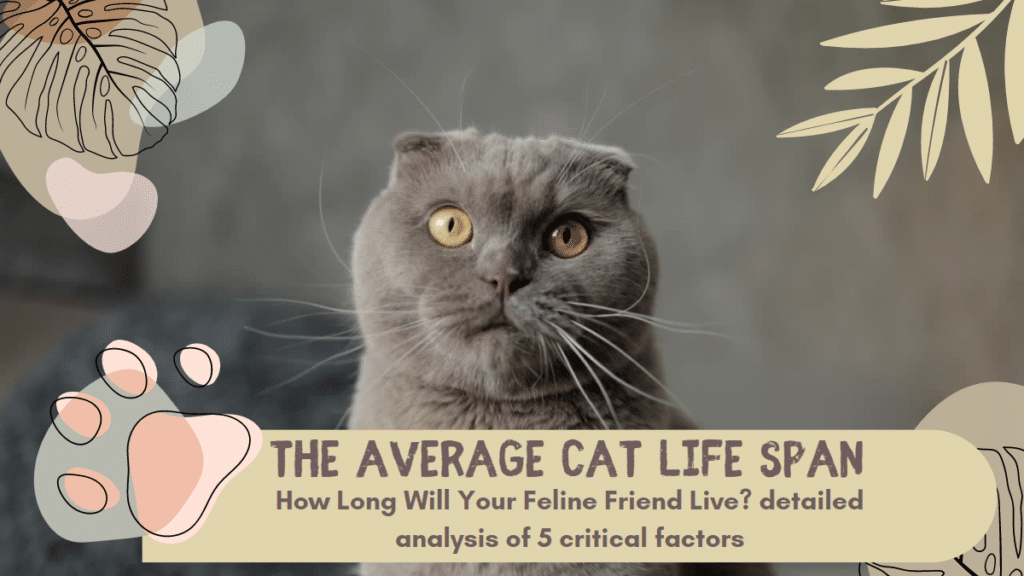how long do cats grow: Cats are one of the most popular pets in the world, and for good reason. They are independent, yet affectionate, and they can provide years of companionship. But how long do cats grow? And what can you expect as your cat matures?
In this article, we will take a look at the growth stages of cats, from kittenhood to adulthood. We will also discuss some of the factors that can affect a cat’s growth, such as breed, diet, and health.
How Long Do Cats Grow?
So, how long do cats grow? The answer is that it depends on a number of factors, including the breed of your cat. Generally speaking, most cats will reach their full adult size by the time they are 12 to 18 months old. However, some larger breeds, such as Maine Coons, may continue to grow for up to 3 years.
Kittenhood
The first few weeks of a cat’s life are critical. During this time, they are learning about the world around them and developing their social skills. Kittens are also growing rapidly during this time, and they will need to eat a lot of food to support their growth.
Adolescence
Between the ages of 6 and 12 months, cats enter adolescence. This is a time of change for cats, as they start to mature both physically and emotionally. They may become more independent and may start to explore their surroundings more.
Adulthood
Most cats reach adulthood by the time they are 12 to 18 months old. At this point, they will have reached their full adult size and will be in their prime. Adult cats are typically healthy and active, and they can enjoy many years of life.
Seniorhood
As cats age, they will start to slow down and may become less active. They may also develop health problems, such as arthritis or kidney disease. Senior cats need special care to ensure their comfort and well-being.
Factors Affecting Cats Growth
There are a number of factors that can affect a cat’s growth, including:
Breed:
The breed of your cat will have a big impact on its growth rate. Larger breeds, such as Maine Coons, will take longer to reach their full adult size than smaller breeds, such as Siamese cats.
Diet:
A healthy diet is essential for supporting your cat’s growth. Make sure to feed your cat a high-quality food that is appropriate for its age and activity level.
Health:
If your cat has any health problems, such as a thyroid disorder, it may affect its growth. Be sure to take your cat to the vet for regular check-ups to monitor its health.
Conclusion:
The growth of cats is a complex process that is affected by a number of factors. By understanding the different stages of growth, you can provide your cat with the best possible care throughout its life.
Here are some tips for caring for your cat as it grows:
1. Provide a healthy diet:
A high-quality food that is appropriate for your cat’s age and activity level is essential for supporting its growth.
2. Take your cat to the vet for regular check-ups.
This will help to identify any health problems that may affect your cat’s growth.
3. Be patient:
Cats grow at their own pace. Don’t worry if your cat isn’t growing as fast as other cats its age.
Watching your cat grow is a wonderful experience. Cherish every moment.
Frequently Asked Questions:
Can you tell how big a cat will get?
Yes, you can tell how big a cat will get by looking at its breed. Generally speaking, purebred cats will be closer to their breed standard size than mixed-breed cats.
Here are some of the most popular cat breeds and their average adult sizes:
- Maine Coon: 10-18 pounds
- Ragdoll: 10-20 pounds
- Siamese: 8-12 pounds
- Persian: 8-12 pounds
- British Shorthair: 8-15 pounds
It is important to note that every cat is different and will grow at its own pace. If you are concerned about your cat’s growth, be sure to talk to your veterinarian.
At what age do cats reach full size?
Most cats reach their full adult size by the time they are 12 to 18 months old. However, some larger breeds, such as Maine Coons, may continue to grow for up to 3 years.
At what age do cats calm down?
Cats typically calm down around the age of 2. However, some cats may be more active than others, even into their senior years.
Do cats grow after 1 year old?
Yes, cats can grow after 1 year old, but it is usually at a slower rate. Some cats may continue to grow until they are 3 or 4 years old.
It is important to note that every cat is different and will grow at its own pace. If you are concerned about your cat’s growth, be sure to talk to your veterinarian.
Is it OK to sleep with your cat in bed?
There are pros and cons to sleeping with your cat in bed. Some people find it comforting to have their cat close by at night, while others worry about the cat getting into bed with them and disturbing their sleep.
If you do decide to sleep with your cat in bed, there are a few things you can do to make it a safe and comfortable experience for both of you:
- Make sure your bed is large enough for both you and your cat to sleep comfortably.
- Provide your cat with a separate bed or blanket to sleep on, so they have a place to go if they get too hot or cold.
- Keep your cat’s nails trimmed, so they don’t scratch you while you’re sleeping.
- Be aware of any allergies you or your partner may have to cats, and take steps to avoid exposing them to cat dander.
Do cats know humans are bigger?
Yes, cats know humans are bigger. They can sense this by the way we look, sound, and smell. Cats also learn that humans are bigger than them by interacting with us and seeing how we react to them.
Do cats know their names?
Yes, cats can learn their names. They may not always respond when you call them, but they do know what their name is. Cats learn their names by associating their name with positive things, such as food or attention.
Do cats get lazier with age?
Yes, cats can get lazier with age. This is because they start to slow down physically and may not have as much energy as they used to. However, every cat is different and some cats may stay active well into their senior years.
Why do cats purr?
Cats purr for a variety of reasons. It is thought that purring may be a way for cats to communicate with each other and with humans. Purring may also be a way for cats to self-soothe or to heal themselves.
You May Also Like: Why Cats Are So Soft: 5 Fascinating Facts About Cat Fur:

